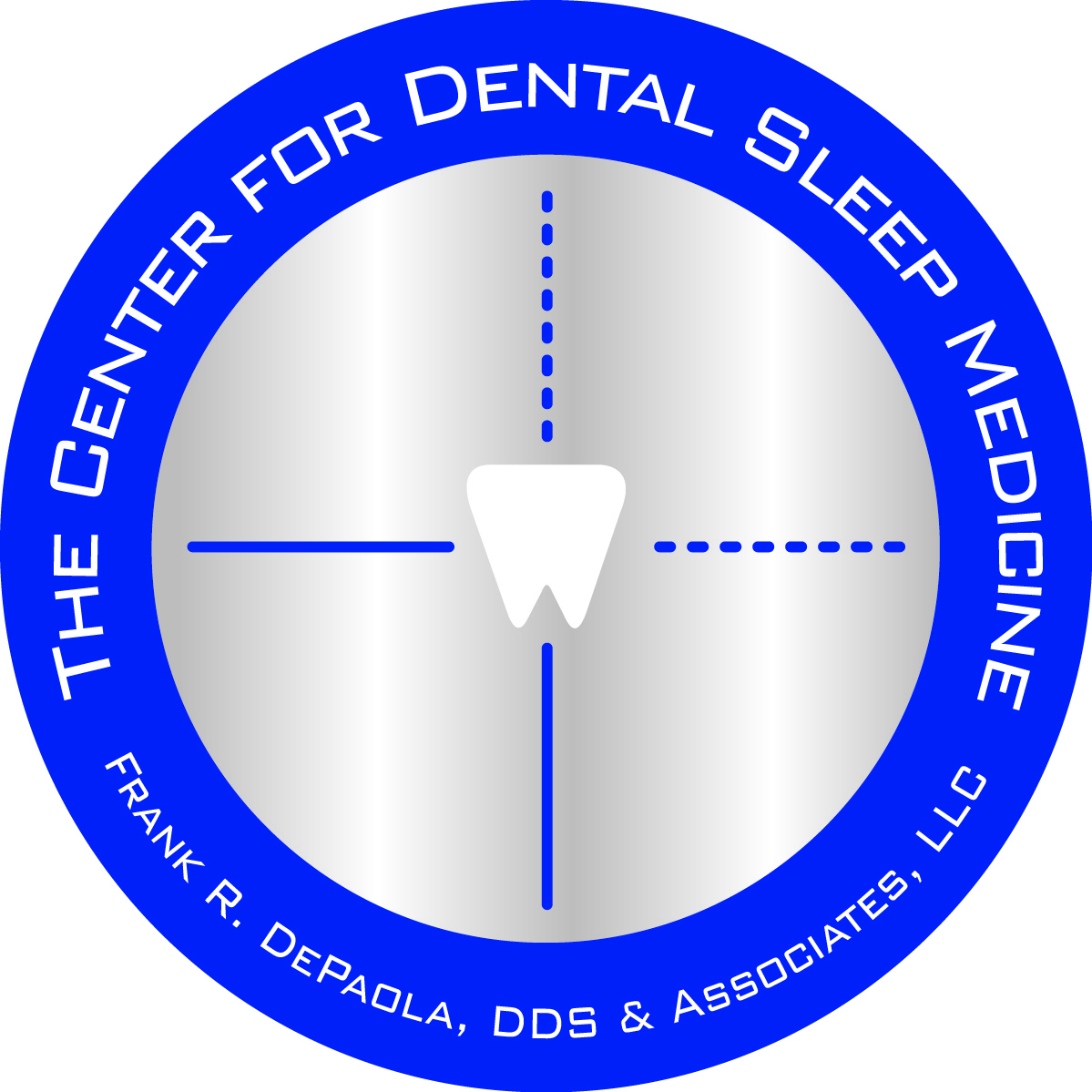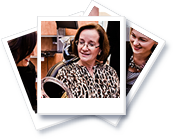 Sleep Apnea is a condition that causes you to stop breathing while you sleep, often hundreds of times every night. While millions of Americans suffer from sleep apnea, the condition often goes undiagnosed, leading to even greater health problems as they get older. If you think you may be suffering from sleep apnea, you should seek medical attention at once.
Sleep Apnea is a condition that causes you to stop breathing while you sleep, often hundreds of times every night. While millions of Americans suffer from sleep apnea, the condition often goes undiagnosed, leading to even greater health problems as they get older. If you think you may be suffering from sleep apnea, you should seek medical attention at once.
Although it mostly affects the respiratory system, the causes of sleep apnea are almost all dental in nature. In order to help patients who are living with this condition, Hoboken and Jersey City dentist Dr. Frank R. DePaola maintains the Center for Dental Sleep Medicine, which specializes in the diagnosis and treatment of sleep apnea. Take the first step towards better health and schedule a consultation with the center by calling 201-792-9400 today.
What is Sleep Apnea?
The most common form of sleep apnea is obstructive sleep apnea, in which your breathing stops because the airway in your throat closes during sleep. This blockage can occur due to several physical factors: the muscles in the throat and tongue relaxing too much; the size of the neck, tongue, uvula, and tonsils; even the position in which you sleep. To discover what will help most in your particular case, it's a good idea to learn more about the condition.
For more information, you can schedule an appointment with the Center for Dental Sleep Medicine, located in the Hoboken area. We'll look at your case and run tests to ensure you are properly diagnosed, and we can give you access to the best medical technology currently available to treat sleep apnea, like the MicrO2 Sleep and Snore device.
What are the Symptoms of Sleep Apnea?
Because sleep apnea occurs when you are sleeping, it can be difficult to self-diagnose. Most cases of sleep apnea are caught because the patient's partner is kept up by snoring, or notices that the patient occasionally stops breathing. People who sleep alone are much less likely to notice the condition. However, there are other symptoms of sleep apnea that can be used to determine whether or not you are affected.
Symptoms of sleep apnea include:
- Daytime sleepiness
- Waking up and feeling unrested
- Morning headaches
- Chronic fatigue
- Insomnia
- Waking up with a choking or gasping sensation
- Dry mouth
- Sore throat
- Problems with your short-term memory
- Difficulty concentrating
- Decreased sex drive
- Weight gain
- Snoring
- Morning headaches
If you are experiencing one or more of these symptoms, you should visit the Center for Dental Sleep Medicine in Hoboken and schedule a sleep apnea screening as soon as possible.
Diagnosing Sleep Apnea
At the Center for Dental Sleep Medicine, an off-shoot of The Practice at Maxwell Place devoted to helping Hoboken-area residents with their sleep apnea, we have two sleep physicians on staff and collaborate with sleep centers in New York City and Edgewater, NJ at Sleep Disorders Institute and Palisades General Hospital. As a result, we have all the resources and knowledge required to help you with your condition.
Sleep apnea is usually detected by: Sleep tests. You will be hooked up to equipment that monitors your heart rate, blood flow and respiratory activity while you sleep. This allows us to get a sense of whether you are experiencing anything unusual during sleep. There are also home sleep apnea tests. A doctor’s evaluation.
If we believe you are suffering from obstructive sleep apnea, we might send you to see an ear, nose and throat doctor. He or she will check for any blockages or obstructions in your nose or throat. We will use our full range of abilities and resources to detect your sleep apnea.
Complications from Sleep Apnea
Snoring, the main symptom of sleep apnea, is not generally considered dangerous. Most people think of it as a minor nuisance rather than something that requires immediate medical attention. But sleep apnea can have major consequences for your long-term health if left untreated, and increases your risk for many life-threatening conditions.
People with sleep apnea are at increased risk for:
- Heart attack
- Stroke
- High blood pressure
- Depression
- Fibromyalgia
- Cardiac arrhythmia
- Gastric Reflux
- Diabetes
- Periodontal Disease
Sleep apnea can also be related to conditions like obesity or alcoholism. In some cases, treating these conditions can help reduce your sleep apnea symptoms. But often, treating your sleep apnea is the most important step to greater overall health. A good night's sleep is essential to long-term health, and you won't feel rested if your body spends the whole night struggling for air.
Sleep Apnea Services
Because sleep apnea can be so detrimental to your health, it is important that you get the best possible treatment for your particular case. The causes and severity of sleep apnea can vary wildly from person to person, and what works for one person might not for another.
Fortunately, the sleep apnea specialists at the Center for Dental Sleep Medicine are experts in determining the exact cause of your sleep apnea, and they work closely with dentists from Dr. Frank's Hoboken practice to ensure your condition is treated with the appropriate tools. You may try a few different approaches before landing on the ideal solution, but the center has so many treatment methods available that you're certain to find one that works.
Here are a few of the sleep apnea treatment options we offer:
- Oral appliance therapy
- Continuous positive airway pressure (CPAP)
- MicrO2 sleep and snore device
- SomnoDent sleep appliance
- DNA expansion orthodontic therapy
Not only will we find the sleep apnea solution that is right for you, we will follow up with you and ensure that there are no further complications from the device. Some patients find that certain treatment options create other difficulties - for example, a CPAP machine may be too loud and keep them awake - and when these arise, we will work with you to find a lasting solution.
Creating your Sleep Apnea Treatment Plan
Dr. Frank will work closely with our on-staff sleep physician to make appropriate recommendations for your sleep apnea treatment. For mild cases of sleep apnea, he may recommend a series of lifestyle changes to address your condition. These may include:
- Losing weight
- Reducing alcohol intake
- Changing sleep positions to avoid sleeping on your back
- Stopping smoking
- Avoiding heavy meals close to bedtime
- Elevating your head with additional pillows to improve nighttime breathing
However, if these lifestyle changes do not improve your sleep apnea or if your condition is too severe for these methods to be effective, Dr. Frank may recommend the use of a sleep apnea device to help you sleep through the night.
Oral Appliance Therapy
Oral appliance therapy involves the use of a custom-fit device which is worn while you sleep to help keep your airway open. These devices are FDA-approved and work to prevent the soft tissue from collapsing so that you can breathe properly through the night. Oral appliances minimize the effects of sleep apnea by:
- Repositioning the lower jaw, tongue, and soft palate
- Stabilizing the tongue and jaw to keep your airway unobstructed
- Providing artificial muscle tone to prevent your airway from collapsing
A scan of your mouth will be taken to ensure your oral appliance is designed to fit comfortably. Dr. Frank has achieved improved results and patient comfort by using the same technology (TENS therapy and K7 system) that determines a balanced bite position for TMJ patients. This allows for a physiologic approach to the treatment of sleep apnea.
CPAP
Continuous positive airway pressure (CPAP) is a treatment which uses a machine to deliver air pressure to you while you sleep. A mask is worn over the nose and/or mouth, and a machine that is connected to the mask will deliver a continuous flow of air pressure to ensure your airway stays open throughout the night.
While CPAP is considered to be one of the most effective sleep apnea treatment methods, many patients find the apparatus to be uncomfortable. However, Dr. Frank has been successful at weaning patients off of CPAP long term by utilizing DNA expansion orthodontic therapy to keep the airway open while sleeping.
Follow-up studies at home or at our sleep clinic will be conducted to ensure you achieve optimal and continued results with your sleep apnea treatment.
Learn about the MicrO2™ sleep and snore device, a new sleep apnea treatment option that is much more comfortable and easier to use than CPAP.
Schedule Your Consultation Today!
If you think you may be suffering from sleep apnea, then schedule an appointment with the Center for Dental Sleep Medicine today! Contact us through this website or by calling 201-792-9400. We serve patients living in Hoboken, Jersey City, and Hudson County, New Jersey.














